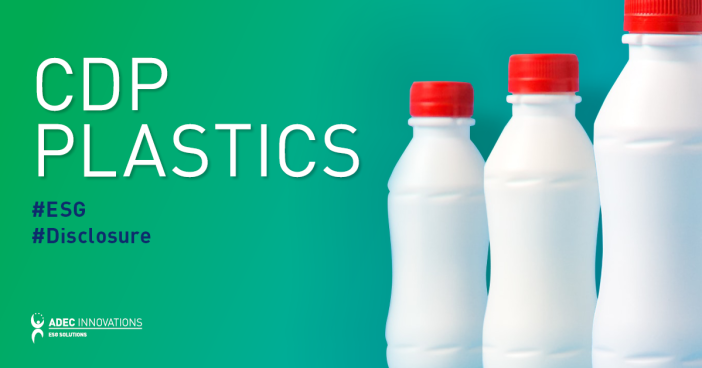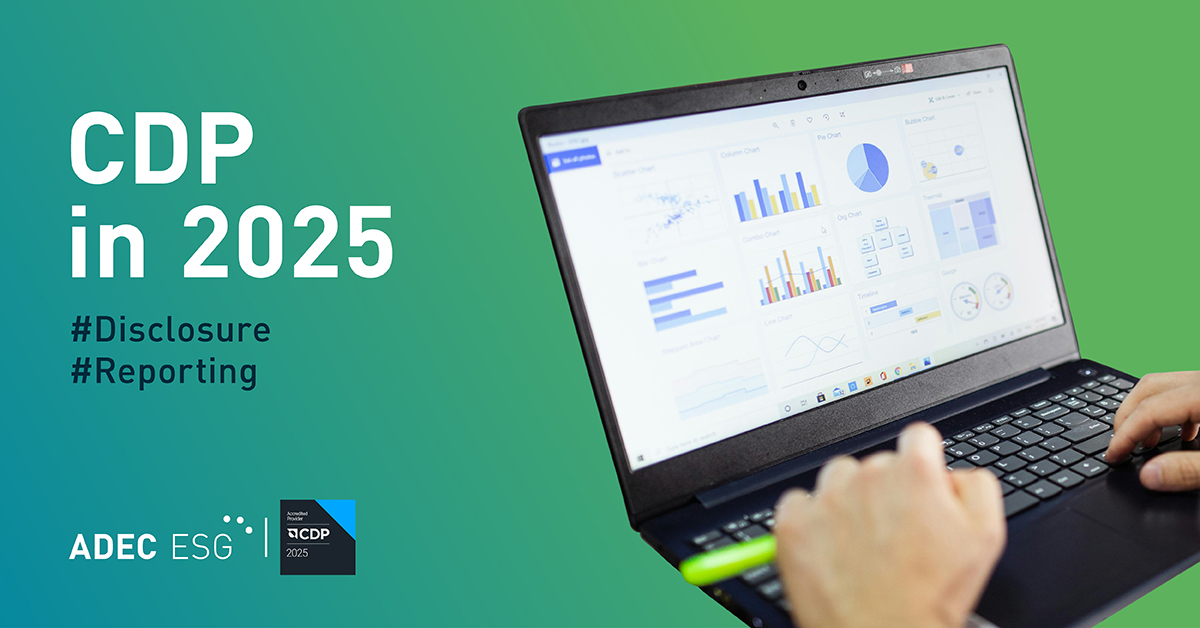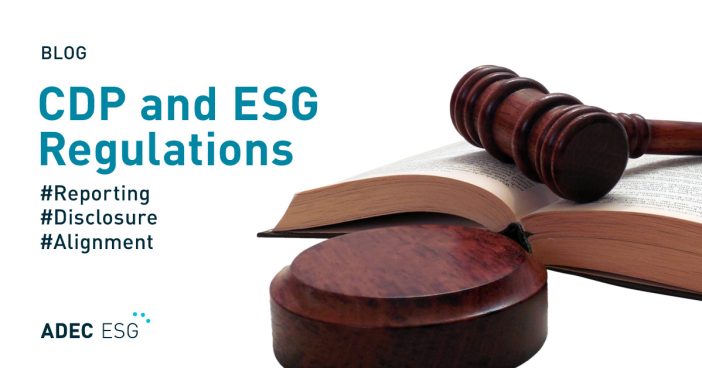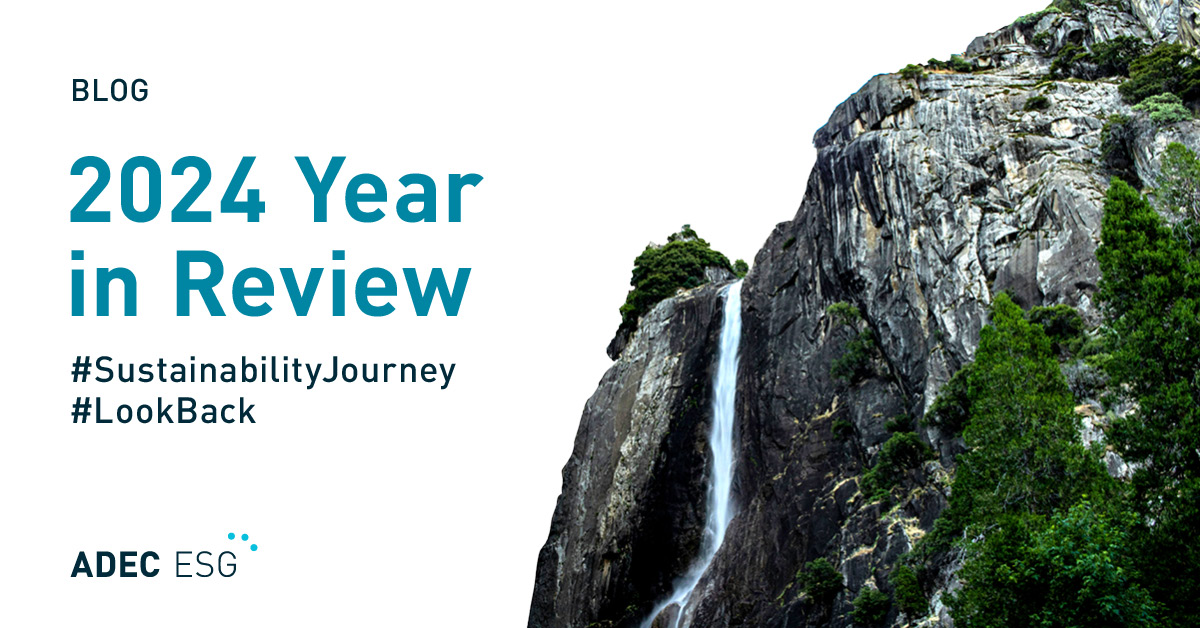Why Plastics?
We are all familiar with the plastic pollution problem, and many of us have seen images similar to the one below, taken in Albania in 2019, demonstrating how plastic waste has infiltrated natural environments and communities. This type of pollution entangles wildlife, leaches harmful chemicals into nearby waterways, and litters landscapes around the world.
Beyond managing household waste, the plastic pollution problem must be addressed globally with the support of corporations around the world. In fact, the motivation for companies to do so follows the same narrative as disclosing and reducing greenhouse gas (GHG) emissions: it is essential, and also beneficial, for a company’s operations and business strategy.
Financial, reputational, and regulatory challenges around reducing plastic consumption and waste will continue to rise—and financial, reputational, and regulatory opportunities will reward those who commit to making those reductions. Several countries and states have already banned or are planning to ban the production of single-use plastics. Making this shift is imperative, both to maintain business resilience as the world focuses on sustainability and to maintain the delicate balance of a healthy and stable ecosystem.
While we are all exposed to plastic pollution issues, we cannot collectively address them all until we wholly understand them. First, let’s discuss the scale of the global plastic pollution problem.

The Scale of the Plastic Pollution Problem
For many developed regions of the world, a large volume of plastic waste exists outside our frame of sight. It often accumulates in communities and remote locations, where local infrastructures are challenged to remove it effectively. As of 2019, there had been approximately 368 million metric tons of plastic produced globally.
Plastic waste and resulting chemicals also impact huge populations of humans and animals every day, creating extensive socioeconomic and biodiversity issues. This damage continues long after a plastic product is passed beyond its end user, and many commonly used plastic products such as beverage containers and toothbrushes may take hundreds of years to break down.
Plastics have an important role to play in everyday life due to their functionality, durability, and sanitary benefits. Nonetheless, according to some reports, somewhere between 30% and 60% of plastics are characterized as unnecessary and can be replaced by shifting to reuse models. Some simple examples of this are eliminating overpacking, encouraging reuse at the consumer level, and offering new delivery systems.
Plastics disclosure will bring transparency to every organization’s impact on and from the plastic pollution problem across the value chain and highlight many opportunities to reduce plastic production and consumption. Disclosure to ESG indices like CDP will encourage companies to evaluate their direct operations, supply chain, and product-use stage in order to map where plastics are being produced and used.
CDP’s Impact Potential on a Global Scale
Disclosure and transparency are vital tools to motivate change. This is where the work done by CDP, partnering with The Pew Charitable Trusts, Minderoo Foundation, and the Ellen MacArthur Foundation, holds a powerful opportunity.
Nearly 15,000 organizations around the world disclosed climate, water, and forestry data through CDP in 2022. In 2021, more than 13,000 companies worth over 64% of global market capitalization and over 1,100 cities, states, and regions disclosed through CDP. Noelle Bartlett, Chief Impact Officer at CDP, states that “our disclosure system is uniquely positioned to scale disclosure on plastics across the global economy. Not only will this drive corporate action to reduce plastic pollution, but it will also be critical in boosting transparency and accountability, redirecting capital towards sustainable activities and supporting governments to develop robust and ambitious policies.”
In a survey run by CDP in 2022, 88% of companies said that plastic was a relevant issue, and yet a third (32.5%) did not have plastic-related targets. Public disclosure opens the door for reputational scrutiny from investors, customers, employees, governments, and just about anyone in a company’s value chain. In the same survey by CDP, 81% of responding capital markets and supply chain members said that the information requested by CDP on plastics would be useful to inform financial or procurement decisions.
Adding plastics to the CDP disclosure platform creates an opportunity to identify major areas of plastic use and production. It also transforms the topic of plastics into an actionable item of discussion in board rooms globally.
2023 CDP Plastics Questions
In 2023, CDP is introducing nine plastics-related questions to its Water Security Questionnaire to add clarity to the following with regards to companies’ plastic production and/or usage:
- Mapping plastics within the value chain
- Evaluating potential environmental and human-health impacts
- Exposure to plastics-related business risks
- Understanding the use of raw vs renewable or recyclable content
These new questions also give some clarity to the topic of setting plastics-related targets such as:
- Reduce the total weight of virgin content in plastic polymers
- Eliminate single-use plastic goods
- Increase the proportion of plastic packaging that is reusable, etc.
In addition to having an opportunity to disclose this plastic-related information, companies will be encouraged to:
- Set commitments to reduce reliance on fossil fuel feedstocks and shift to circular recycled polymers.
- Shift capital towards suppliers and partners using recycled plastic waste as feedstock.
- Reduce unnecessary single-use plastics by redesigning packaging and single-use products, scale innovative re-use models, and substitute materials (Minderoo Foundation).
Similar to the more commonly discussed financial risk of carbon taxes for high emitting companies, high plastic-use companies face US$100 billion in annual financial risk if governments require them to cover waste management costs at expected volumes and recyclability. The main stakeholders on the subject of single-use plastic, according to research done by the Minderoo Foundation, are polymer producers, investors and banks, policymakers, and other companies in the supply chain.
In fact, companies may experience additional financial risks related to GHG emissions due to their plastic consumption. In production, plastics currently consume approximately 6% of global oil, and plastic production processes release more than 390 million metric tons of CO2e (4% of all global GHG emissions in 2015). As scope 1, 2, and 3 emissions reporting requirements become more stringent, a company’s emissions tied to plastic consumption may become increasingly material. Setting commitments to reduce this plastic consumption will be met with GHG emissions reductions as well.
While the 2023 CDP plastics questions are high-level for now, it is likely that they will continue to evolve over the years, requiring companies to disclose use of plastic products in their value chain in greater detail in order to receive a high CDP Water Security score. The release of these initial questions is an opportunity for companies to get ahead and begin thinking about setting commitments related to plastics.
Conclusion
Thanks to dedicated organizations and individuals, efforts to clean up the overwhelming amount of plastic waste across the globe are already underway. However, if plastic production and consumption maintain the current trajectory, piles of plastic waste and the chemicals they leach into their surroundings will continue to afflict communities and ecosystems.
Studies have shown that with existing solutions and everyone playing their part, the amount of plastic entering the environment could be reduced by 80% from 2020 levels by 2040. This is why external motivating factors and stakeholder pressure are so crucial to enacting real change. These drivers play a huge role in propelling industries to evaluate corporate plastic consumption, set commitments to change the way we use plastics, and chase the financial and strategic opportunities that will present themselves to lead the way in the innovation of re-use models and recycled materials and products.
For over 30 years, ADEC ESG Solutions has worked with global organizations to improve their ESG programs and reporting. In 2022, we helped 94% of our clients achieve CDP Management B or better. Click here for a more comprehensive list of how we can help.




